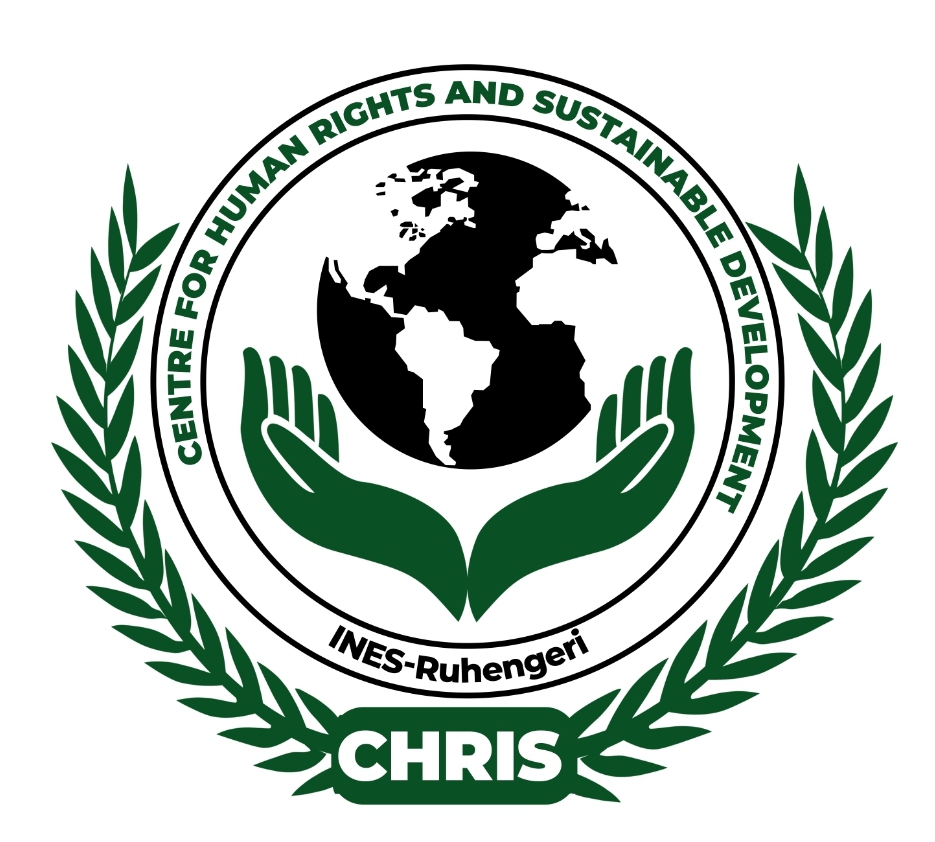Centre for Human Rights and Sustainable Development (CHRIS)

I. DEFINITION
A. The Centre for Human Rights and Sustainable Development (“CHRIS”) is an academic department within the Faculty of Law and Public Administration which is subject to all the academic prescripts and Regulations of the University. It shall have its own logo separate from that of the Faculty and the University. It shall also have its separate social media handles which shall be under the supervision of the University’s Public Relations Department.
B. It is a not for profit, a political, autonomous, neutral, and non-partisan institution which aims at advancing the promotion and protection of human rights, and the attainment of the SDGs, through education, research, advocacy and publication. In this regard, the Centre carries out public benefit activities, in a non-profit, neutral and impartial manner with an altruistic intent.
C. The Centre reports annually to the Departmental of Law (the Department) which sits to discuss matters regarding to the Centre on an annual basis and the University Senate on its activities, income and expenditure. It also reports annually to the Centre’s Advisory Board on the activities undertaken.
II. VISION, MISSION AND VALUES
A. The vision of the Centre from the narrow perspective is to make INES-Ruhengeri a hub for scientific and academic excellence through research and advocacy, thus enhancing the protection of human rights and the advancement of sustainable development. From the broader perspective, the Centre has the vision of a Rwanda, an Africa and a world in which everyone enjoys and exercises human rights and democratic governance.
B. The mission of the Centre is to work in collaboration with grassroots, national and international organizations, NGOs, and research institutions to exchange knowledge and expertise towards the realisation of human rights particularly in Africa through innovative, cutting-edge and impactful teaching, training, conferences, workshops and seminars, quality research, capacity building, strategic litigation, advocacy and publication. The Centre therefore strives for excellence in all its undertakings.
C. The activities of the Centre are guided by the following values:
1. The Centre functions and is guided by human rights, in particular the principle of non-discrimination, equality, human dignity, and respect for diversity and everyone. It adopts a human rights-based approach to all its activities.
2. We are bound by and uphold all University policies. In particular, we strongly disapprove sexual harassment, misuse of authority, racism, homophobia, xenophobia and other forms of intolerance and stigmatisation. The Centre is committed to transformation and diversity in its programmes, projects, staff composition and internal functioning.
3. We act with compassion to ensure the inclusion and protection of those most vulnerable to human rights violations.
4. We aim to provide a non-judgmental and participatory convening space where intellectual freedom prospers. We fully subscribe to the principle of academic freedom.
5. We commit ourselves to act with integrity in all our endeavours, by acting with fairness to all.
6. We consider ourselves accountable to everyone involved in our work, our partners, our colleagues, the Faculty and the broader University community. We therefore uphold the principle of transparency.
7. We commit ourselves to act with excellence and professionalism, and be effective and efficient in our use of resources and our reporting to donors, in terms of specific grant agreements.
8. We strive at advancing the acceptance of diversity and difference, and by working in solidarity with each other and our partners.
9. We endeavour to foster a critical pan-African identity.
10. We commit ourselves to invest in the future of Africa’s youth.





